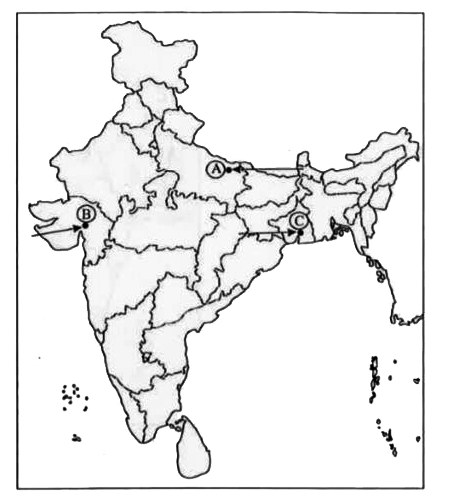"The Non-Cooperation Movement was training for self rule," Analyze the statement of American biographer Louis Fisher in the context of Indian Nationalism.
Gandhiji hoped that by coupling Non-cooperation with Khilafat, the Hindus and Muslims collectively will bring an end to the British rule.These movemnents were a surge of popular action that was unprecedented in colonial rule. The people were asked to stop attending schools, colleges and law courts, and not pay taxes. In sum, they were asked to adhere to a "renunciation of (voluntary association with the (British) Government". If non-cooperation was effetively carried out, said Gandhiji, India win swaraj within a year.
Consquently, students stopped going to schools and colleges run by the government. Lawyers refused to attend court. The working class went on strike in many towns and cities. According to official figures, there were 396 strikes in 1921, involving 600,000 workers and a loss of seven million workdays. The countryside was filled with discontent too. Hill tribes in Northern Andhra violated the forest laws. Farmers in Awadh did not pay taxes and peasants in Kumaun refused to carry loads for colonial officials.
These protest movements were sometimes carried out in defiance of the local nationalist leadership. Peasants, workers, and others interpreted and acted upon the call to "non-cooperate" with colonial rule in ways that best suited their interests. The main ideas behind the movement were Satya, Satyagraha, Ahimsa, Self discipline. The British Raj was shaken to its foundation. The non copreation movement. brought people from different parts of the country to fight against the British. People of all castes and creeds participated in the movement, Pcople from all classes of society participated in the movement. Khadi, promotion of village industries, Hindu-Muslim unity, abolition o untouchability, boycott of British goods and social reforms werc an imporant part of the movement. Chauri Chaura incident forced Gandhi to call off the Non-Cooperation Movement. In words of Mahatma Gandhi's American biographer Louis Fischer, "Non-cooperation became the name of an epoch in the life of India and of Gandhiji. Non-cooperation was negative enough to be peaceful but positive enough to be effective. It entailed denial, renunciation, and self discipline. It was training for self-rule."
Topper's Solved these Questions
- DELHI 2019BOOK - XII BOARDS PREVIOUS YEARCHAPTER - DELHI 2019EXERCISE - DELHI 2019 - SET II
7 Videos
- DELHI 2019BOOK - XII BOARDS PREVIOUS YEARCHAPTER - DELHI 2019EXERCISE - DELHI 2019 - SET III
7 Videos
- DELHI 2017BOOK - XII BOARDS PREVIOUS YEARCHAPTER - DELHI 2017EXERCISE - DELHI 2017 - SET III
6 Videos
- HISTORY 2018BOOK - XII BOARDS PREVIOUS YEARCHAPTER - HISTORY 2018EXERCISE - HISTORY 2018
27 Videos
Similar Questions
Knowledge Check
Consider the following statement
No Indian could have started the Indian National Congress. If the founder of the congress had not been a great Englishman and a distinguished ex- official, such was the distrust of political agitation in those days that the authority would have at once found some way or the other to suppress the movement.
Who among the following gave the statement on the establishment of Indian National Congress?AW. WedderburnBG. K GokhaleCR. Palme DuttDAllan Octavian HumeConsider the following statements regarding Non-Cooperation Movement:
1. The Indian National Congress unanimously accepted the proposal of non-cooperation.
2. Before launch of the movement, Gandhiji gave a notice to the viceroy about the movement.
3. Lokmanya Tilak passed on the day the movement was launched.
Which of the statements given above are correct?A1 and 2 onlyB2 and 3 onlyC1 and 3 onlyD1, 2 and 3Consider the following statements A and B and choose the correct answer
A. The Non -Cooperation Movement gained momentum through 1920-22 ,when thousand of students left government controlled schools and colleges.
B. The Non -Cooperation Movement was not supported by Muslim leader of the countryAA is true ,B is falseBBoth A and are falseCA is false ,B is trueDBoth A and B are true
Explain how Non-Cooperation Movement made Gandhiji a national leader.
View SolutionThree features A, B and C are marked on the given political outline map of India. Identify these features with the help of the following information and write their correct names on the lines marked on the map
A. The place, related to the calling off the 'Non-Cooperation Movement.'
B. The place where ther ' Peasants Satyagraha ' was started .
C. Name the place where 'Indian National Congress' Session (September 1920) was held.

View SolutionConsider the following statements : The most effective contribution made by Dadabhai Naoroji to the cause of Indian National Movement was that he 1.exposed the economic exploitation of India by the British. 2.interpreted the ancient Indian texts and restored the self confidence of Indians. 3.stressed the need for eradication of all the social evils before anything else. Which of the statements given above is/are correct?
View SolutionGandhiji launched the Non-Cooperation Movement in a small village called Champaran. In which current Indian state is Champaran located?
View SolutionConsider the following statements:
The Non-Cooperation Movement led to the:
1. Congress becoming a mass Movement for the first time
2. Growth of Hindu-Muslims unity
3. Removal of fear of the British might come from the minds of the people
4. British Government's willingness to grant political concessions to Indians
Of these statements:
View Solution
